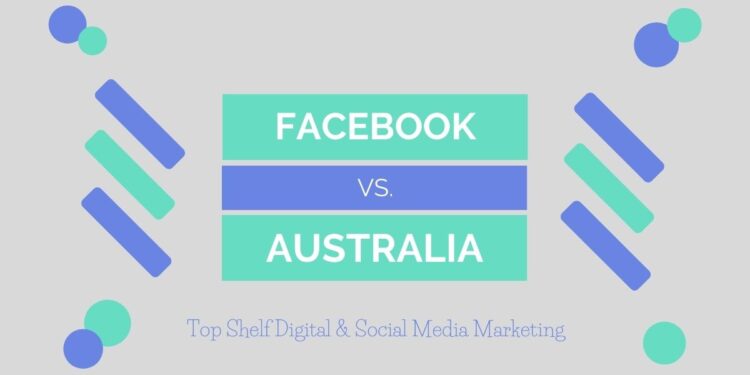
Less than a week after Facebook’s News Ban in Australia went into effect, the social media giant and Government came to an agreement to restore news pages.
The History Behind Facebook’s News Ban in Australia
In 2017, the Australian Government asked the Australian Competition and Consumer Commission (ACCC) to “consider the impact of online search engines, social media and digital content aggregators on competition in the media and advertising services markets.” The ACCC raised several key concerns about the local media sector, including the decline in advertiser spending which has historically funded local reporting in Australia .
The following year, the Australian Government tried to target Facebook and Google via tax reform, but the Trump Administration refused to allow US-based companies to suffer higher tax obligations.
From there, the Government called on Google and Facebook to voluntarily negotiate with local Australian media to reach a payment model for the use of news content on their platforms.
Facebook and Google both declined to negotiate and argued that local news content provides very little value for their companies yet they benefit the local news organization by hosting links to their material.
Facebook’s News Ban Explained
In April 2020, Australian Treasurer Josh Frydenberg told the ACCC “to address bargaining power imbalances between digital platforms and media companies”. With that, the Government’s line was drawn in the sand: Google and Facebook would be legally required to share a portion of their revenue with local news publishers for any use of news content, including links to their sites.
Social Media Today has posted two great articles outlining the details leading up to the standoff and eventual ban as well as specifics of what was happening on the ground in Australia as a result of Facebook’s news ban.
For it’s part, Facebook had released several statements and pulled out of all media interviews in Australia. It’s official response was:
“In response to Australia’s proposed new Media Bargaining law, Facebook will restrict publishers and people in Australia from sharing or viewing Australian and international news content.”
Facebook
Reaching an Agreement
Less than a week after Facebook’s news ban went into effect, it was announced that the Australian Government and social media powerhouse had reached an agreement.
This comes as no surprise. According to Social Media Today, “in the day following Facebook’s decision, traffic to Australian news sites from visitors outside the country dropped by 20%” (Social Media Today).
The compromise enables “Facebook to run news without having to go through a government-run arbitration process, Facebook’s head of news partnerships, Campbell Brown, said in a statement” (Washington Post).
Does This Set a Precedent for Other Countries?
According to The NY Times, “many other jurisdictions, like Canada and the European Union, are eyeing similar rules to Australia’s.”
Even if that’s true, some people are surmising this power play was fueled in part by the power welded by Rupert Murdoch and News Corp – who stand to gain the most by some kind of legally mandated royalties.
“Was [the intent] to level the playing field, as per the Government’s original stated intention, or was it just to extract more money from Google and Facebook? And will it really benefit ‘journalism’ as whole, or just the big players like News Corp – which, incidentally, also pays virtually no tax in Australia?”
Social Media Today
In Conclusion
It seems Facebook has won the day in this case. And we can’t help but think justice has been served. There were a number of flaws with the the Australian Government’s proposed Media Bargaining Code, chiefly that the Code didn’t necessarily address the concerns of the ACCC’s original report.
Time will tell if Australia or other countries try to monetize Facebook. But if Facebook’s news ban truly decreased international traffic to Australia’s news sites by 20% it’s likely media companies will push back against that kind of legislation. Advertisers pay based on traffic, and if traffic declines so will ad revenue – which interestingly, is what supports the vulnerable journalism the ACCC was trying to preserve.
To see if your needs align with our skills tell us a little about your brand.
